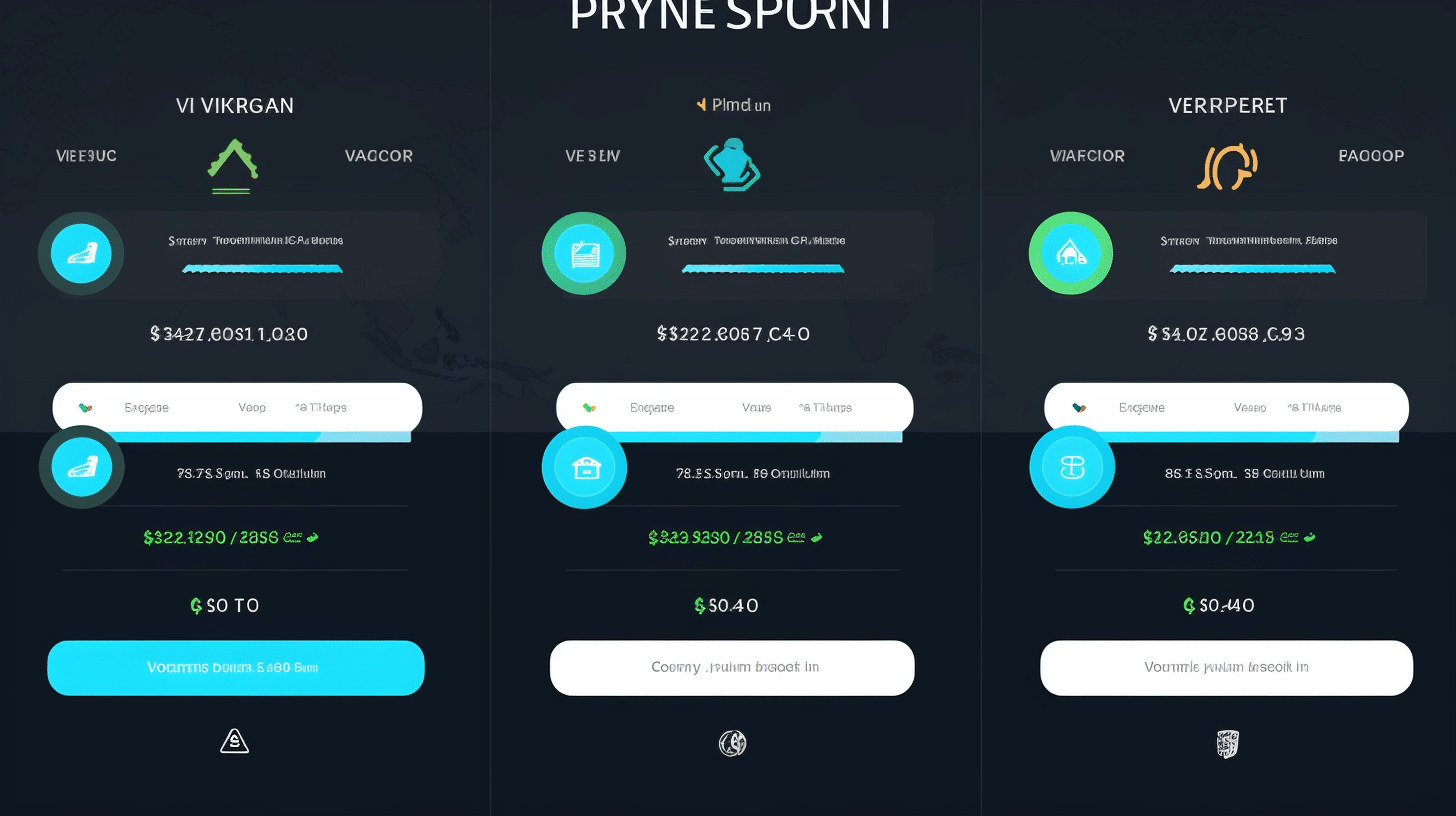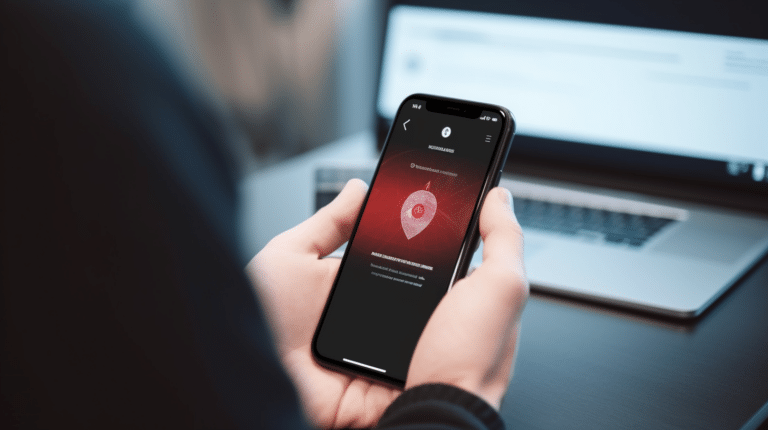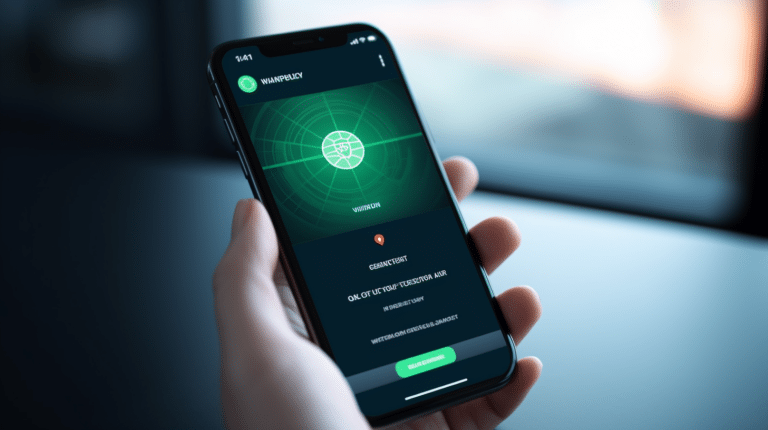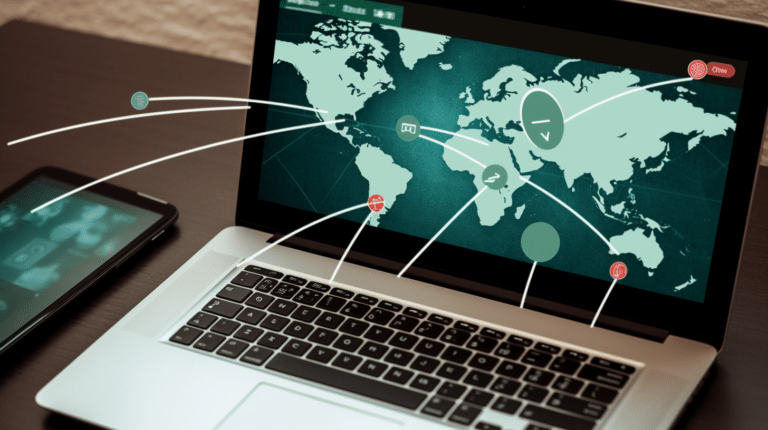Virtual Private Networks (VPNs) are essential tools for maintaining privacy and security online. Many internet users opt for VPN services to protect their data, bypass geographic restrictions, and keep their online activities anonymous. Understanding the cost of VPNs is crucial in determining the most suitable service for your needs and budget.
The pricing of VPNs can vary significantly depending on the provider, features offered, subscription length, and additional services included. Some VPNs charge a monthly subscription fee, while others charge annually or offer lifetime access for a one-time payment. Users must consider various factors that affect VPN pricing, including the number of simultaneous connections, server locations, and security protocols provided.
Key Takeaways
- VPN costs can largely differ based on the provider, features, and subscription length.
- Factors affecting VPN pricing include simultaneous connections, server locations, and security protocols.
- To get the most value, compare features and benefits of different VPNs and consider your specific needs.
Understanding VPN Costs
When considering a VPN (Virtual Private Network) for personal or business use, it’s essential to understand the costs involved. This section will discuss the factors affecting VPN pricing such as subscription plans, pricing tiers, and free VPNs.
Subscription Plans
The majority of VPN providers offer various subscription plans with different pricing structures. Typically, you can choose from monthly, quarterly, or annual plans. Generally, the longer the subscription period, the lower the total cost will be. For instance, a monthly plan may cost $10 per month, while an annual plan might cost $60 per year, effectively reducing the monthly price to $5.
Pricing Tiers
VPN providers also differentiate their offerings through pricing tiers. These tiers may vary based on the number of devices allowed, connection speed, or other additional features. For example, a basic plan might allow 3 devices with standard speed while a premium plan could offer 5 devices with faster speed and extras such as dedicated servers. Comparing the tiers and their features is essential to select a plan that suits your needs and budget.
Free VPNs
Several VPN providers offer free VPN services, where users do not have to pay any subscription fees. While tempting, it’s important to consider potential drawbacks such as limited data usage, restricted speeds, and fewer server locations. Additionally, free VPNs might display ads or sell user data to make up for their costs. In many cases, users find a cheap paid VPN subscription to be more reliable and secure than a free one.
In conclusion, understanding VPN costs is crucial when selecting the right VPN for your needs. Review the subscription plans, various pricing tiers, and free VPN options available to make an informed decision.
Factors Affecting VPN Pricing
Features
The cost of a VPN service largely depends on the features it offers. Some features provided by VPNs include strong encryption, a kill switch, DNS leak protection, and an ad-blocker. The more advanced features a VPN offers, the higher the price it usually commands. However, it’s important for users to consider which features are crucial for their specific needs and preferences to ensure they are paying for the right suite of features.
Number of Servers
The number of servers a VPN provider has in its network can significantly impact the cost of their service. A provider with a large and diverse network of servers can offer better performance, connectivity, and reliability to its users. As a result, VPNs with larger server networks tend to have higher prices. It’s essential to evaluate the number of servers a VPN offers and its server locations to ensure subscribing to a plan that’s worth the investment.
Supported Devices
A VPN’s pricing can also be influenced by the number and types of devices it supports. Some VPNs cater to a wide range of devices such as desktop computers, laptops, smartphones, and even routers. Generally, the more types of devices a VPN supports, the higher the cost. Nevertheless, users should also consider how many simultaneous connections the service allows, as well as the ease of use on various platforms to ensure they are getting the best value for their money.
Speeds
The speed of a VPN service is another factor that affects its pricing. High-quality VPNs invest in robust network infrastructure that ensures faster download and upload speeds, leading to higher costs. Slow connections can negatively impact the user experience, particularly when streaming or downloading content. Therefore, it’s essential for customers to factor in the expected speeds when comparing VPN services and pricing.
In conclusion, factors such as features, the number of servers, supported devices, and speeds are essential aspects to consider when evaluating VPN pricing. By thoroughly determining their specific needs and comparing different VPN options, users can find the most suitable and cost-effective VPN service for their needs.
Evaluating VPN Value
When determining the value of a VPN service, it’s important to consider several factors that contribute to its overall effectiveness and utility. This section will discuss three key aspects to evaluate when choosing a VPN: Security and Privacy, Streaming Services Compatibility, and Torrenting Support.
Security and Privacy
One of the primary reasons for using a VPN is to ensure security and privacy while browsing the internet. A quality VPN should offer strong encryption to protect your data, as well as a strict no-logs policy to guarantee that your online activities are never recorded or stored. Additionally, look for features such as:
- Secure protocols: VPNs should utilize secure protocols like OpenVPN, L2TP/IPsec, or IKEv2 to provide a reliable connection without compromising security.
- Kill switch: This feature automatically disconnects your device from the internet if the VPN connection is disrupted, ensuring your IP address and online activity remain concealed.
- DNS leak protection: A reputable VPN should offer DNS leak protection to prevent your browsing data from being exposed to third parties.
Streaming Services Compatibility
Many users rely on VPNs to access geo-restricted streaming content, such as Netflix, Hulu, or BBC iPlayer. Not all VPNs offer consistent access to these platforms, as streaming services may block IP addresses associated with VPNs. To ensure compatibility, consider the following:
- Wide server coverage: A VPN with a large network of servers in multiple countries allows for more options to bypass geo-restrictions and find a server that reliably unblocks the desired content.
- High-speed connections: Streaming requires fast and stable connections to ensure high-quality video playback. Look for VPNs that offer unlimited bandwidth and optimized servers for streaming.
Torrenting Support
If you’re interested in using a VPN for torrenting, it’s essential to choose a provider that specifically supports peer-to-peer (P2P) file sharing. Not all VPNs allow torrenting on their servers, and some may have bandwidth limitations or other restrictions. Keep the following points in mind:
- P2P-friendly servers: Look for VPNs that offer dedicated P2P servers designed to support torrenting.
- Port forwarding: This feature can improve download speeds by allowing incoming connections to reach your device more efficiently.
- IP address protection: The VPN should mask your real IP address while torrenting to ensure privacy and protect you from potential legal issues.
Remember, a VPN’s value greatly depends on the aspects that are most crucial to your specific needs. By evaluating these different factors, you can determine which VPN best suits your requirements and budget.
Top Budget-Friendly VPNs
In this section, we will discuss the top budget-friendly VPNs available on the market, focusing on their pricing and features that make them affordable choices for users seeking a reliable and cost-effective solution to protect their online privacy.
NordVPN
NordVPN is a well-known provider in the VPN industry, offering advanced features and a user-friendly interface. Their pricing is competitive, with plans starting at $3.49 per month for a two-year subscription. Some of the key features that make NordVPN an affordable choice for users include:
- Strong encryption and a strict no-logs policy
- Over 5,400 servers in 59 countries
- Simultaneous connection of up to 6 devices
- 30-day money-back guarantee
Surfshark
Surfshark is an excellent budget-friendly option that provides high-quality VPN service at a low cost. Starting at just $2.49 per month for a two-year subscription, Surfshark offers the following features:
- Unlimited simultaneous connections
- More than 3,200 servers in 63 countries
- NoBorders mode to bypass censorship
- CleanWeb feature to block ads and malware
- 30-day money-back guarantee
CyberGhost
CyberGhost is a popular VPN provider that delivers a strong combination of security features and affordability. With plans starting at $2.75 per month for an 18-month subscription, CyberGhost users can benefit from:
- Over 6,600 servers across 88 countries
- Up to 7 simultaneous connections
- Military-grade encryption
- 45-day money-back guarantee on longer subscription plans
Private Internet Access
Private Internet Access (PIA) is known for both its affordable pricing and its commitment to user privacy. Prices start at $2.69 per month for a two-year subscription, making PIA a cost-effective choice for VPN users. Key features of PIA include:
- More than 29,000 servers in 75 countries
- Up to 10 simultaneous connections
- Ad and malware blocking with PIA MACE
- Strict no-logs policy
- 30-day money-back guarantee
Hotspot Shield
Hotspot Shield offers fast connection speeds and budget-friendly pricing. With plans starting at $5.99 per month for a 12-month subscription, Hotspot Shield users can get access to:
- Over 3,200 servers in more than 80 countries
- Up to 5 simultaneous connections
- Military-grade encryption
- 45-day money-back guarantee on longer subscription plans
These top budget-friendly VPNs provide users with a balance between affordability and advanced security features required to protect their online privacy.
Comparing VPN Features
Encryption Technologies
A key feature to consider when comparing VPNs is their encryption technologies. Different VPN providers use various encryption protocols to ensure the privacy and security of your data. For example, ExpressVPN utilizes Advanced Encryption Standard (AES) with 256-bit keys, a highly secure encryption method used by governments and organizations worldwide. When evaluating VPNs, ensure that they offer strong encryption protocols to effectively protect your data.
Simultaneous Connections
Another feature to compare among VPN providers is the number of simultaneous connections they support. This determines how many devices you can connect to a VPN at once. Most providers will offer support for multiple devices, such as smartphones, tablets, and computers, to accommodate various users and their internet usage needs. Check the provider’s offerings to ensure that they allow an adequate number of simultaneous connections suitable for your requirements.
Money-Back Guarantees
Money-back guarantees are essential features in VPN comparisons, as they allow users to test out a service before fully committing. A reliable VPN provider should offer a hassle-free, money-back guarantee to ensure customer satisfaction. For instance, ExpressVPN provides a 30-day money-back guarantee, allowing users to try their service risk-free in that period. When comparing VPNs, consider the length and terms of their money-back guarantees to ensure a satisfactory customer experience.
Customer Support
Lastly, quality customer support is a crucial aspect when comparing VPN features. A good VPN provider should offer excellent customer support through various channels such as email, live chat, and phone. This ensures that users have access to help and guidance whenever they encounter any issues or have questions about the service. Take note of VPN providers with responsive and knowledgeable customer support teams to ensure a seamless user experience and a reliable virtual private network.
By considering these core features, you can make a well-informed decision when choosing the right VPN to suit your needs. Remember to compare encryption technologies, simultaneous connections, money-back guarantees, and customer support among various VPN providers.
How to Save on VPN Costs
Saving on VPN costs is a concern for many users who are looking to protect their privacy and security online. Below are some strategies to save on VPN expenses while maintaining a high-quality service.
Free Trials
One way to save on VPN costs is to take advantage of free trials offered by VPN providers. These trials typically last from a few days to a month and allow you to test the service before committing to a paid plan. By trying several free trials, you can find the VPN that best meets your needs and budget. Some VPNs offer free trials without requiring you to enter payment information, thus reducing the risk of unwanted charges.
Discounts and Promotions
Keep an eye out for discounts and promotions that VPN providers may offer periodically. Many companies provide discounted rates during holiday seasons or special events, such as back-to-school sales or Black Friday. Subscribing to a VPN provider’s newsletter or following them on social media can keep you informed about these promotions, helping you save on your VPN subscription.
Long-Term Subscription Benefits
Signing up for a long-term subscription plan can often lead to significant savings. VPN providers usually offer basic monthly and annual plans, but choosing a multi-year plan can result in lower costs per month. For example, monthly plans might cost $10 per month, while a one-year plan might be billed at $60 ($5 per month), and a two-year plan offered at $90 ($3.75 per month). By committing to a longer subscription, you can save on VPN costs in the long run.
In summary, there are several ways to save on VPN expenses without sacrificing quality. By using free trials, monitoring discounts and promotions, and opting for long-term subscription plans, you can find a VPN service that meets your needs at a reasonable cost. Make sure to consider your budget and privacy requirements when selecting the right VPN service for you.
Choosing the Right VPN for Your Needs
Assessing Your Requirements
Before diving into the vast pool of VPN providers, it’s important to identify your specific needs. This will help you narrow down the list to find the VPN service that best fits your requirements. Consider the following factors:
- Features: Determine the necessary features like the number of simultaneous connections, server locations, and device compatibility.
- Speeds: Analyze your internet usage pattern to identify the required bandwidth and speed. Heavy streaming or gaming requires better speeds than casual browsing.
- Security: If privacy and security are high on your priority list, select a VPN with military-grade encryption, DNS leak protection, and a strict no-logs policy.
- Budget: Set a price range based on your budget and the value the VPN provides. Remember, free VPNs may come with compromises in security and privacy.
Comparing VPN Providers
Once you’ve assessed your needs, it’s time to compare various VPN providers. Here are some factors to consider during the comparison:
- Price: Match your budget with the pricing plans offered by each provider. Some VPNs offer monthly, yearly, or multi-year plans with attractive discounts for longer commitments.
- Ease of Use: Consider user-friendly VPNs, especially for those who are not tech-savvy. A simple, intuitive interface can help save time and prevent mishaps.
- Customer Support: The availability of 24/7 customer support is crucial in case you encounter any issues or need technical assistance.
- Reviews and Reputation: Research the VPN providers’ reputation and customer testimonials to get an honest idea about their service quality.
By considering the factors mentioned above and researching vpn providers, you should be able to find a suitable VPN service. Take your time and weigh the pros and cons carefully to make the right choice for your internet service provider, ensuring high-quality features, optimal speeds, strong security, and robust encryption within your budget.
Frequently Asked Questions
What is the average monthly cost for VPN services?
The average monthly cost for VPN services can vary significantly, but most providers offer plans in the range of $10 to $12 per month. Some low-cost VPN services can be found for as little as $3 per month, while premium providers might charge up to $20 per month. It’s important to choose a VPN service based on your requirements and budget.
Are there any annual discounts for VPN subscriptions?
Yes, many VPN providers offer discounts on annual subscriptions, which can save you a significant amount of money compared to paying on a monthly basis. Annual plans are typically priced at about 50% of the total monthly cost, making them an attractive option for those looking to commit to a VPN service long term.
What factors determine the price of a VPN?
Several factors can influence the price of a VPN service, including the number of server locations, connection speeds, security features, and additional functionality (such as a kill switch or dedicated IP addresses). Additionally, a VPN provider’s reputation, customer support, and overall user experience can also impact how much they charge for their service.
How do prices differ between popular VPN providers?
Prices among popular VPN providers can vary quite a bit, with some providers offering low-cost options while others focus on premium services for a higher cost. For example, VPNs in the library article mentions that some VPN services can be as low as a few dollars per month, while premium providers may charge a higher monthly fee. It’s essential to compare features, performance, and user reviews to determine which VPN offers the best value for your needs.
Are there any additional costs involved with using a VPN?
Typically, there are no additional costs involved with using a VPN aside from the subscription fee. However, certain VPN providers may offer add-on services or features at an extra cost, such as dedicated IP addresses or advanced security features. It’s crucial to carefully review the terms and conditions of any VPN service to understand what is and isn’t included in the subscription price.
Do free VPNs provide the same level of service as paid ones?
While there are various free VPN services available, they generally do not offer the same level of performance, security, and features as paid ones. Free VPNs often have limitations on speed, server locations, and data usage, leading to a subpar user experience. Furthermore, free VPNs may rely on advertising or even selling user data to generate revenue, raising privacy concerns. As a result, it’s generally better to invest in a reputable paid VPN service for a more secure and reliable experience.






